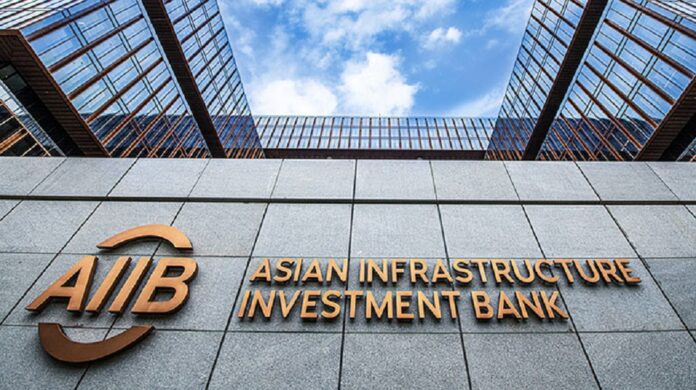The Asian Infrastructure Investment Bank (AIIB), in its annual financial report, has outlined a fund of USD 100 million for crisis-hit Sri Lanka.
The bank also pledged support for countries facing serious debt problems.
In addition, the AIIB is expected to announce a major support package for Pakistan at the upcoming COP summit following the country’s devastating floods.
Bijing-headquartered bank’s annual infrastructure finance report, published today (Oct. 27), lays out its stance for a difficult United Nations Climate Change COP 27 summit in Egypt next month.
It called for heavily-polluting state-owned firms to be rapidly turned into green energy “leaders”, putting special focus on China, India and Indonesia, noting that a global net-zero transition would not succeed without their cooperation.
The report called for pollution-cutting technologies to be shared globally and for countries to stop subsidising fossil fuels – something many have done this year as Russia’s invasion of Ukraine sent energy prices soaring – so that a “meaningful carbon price” can emerge and make investing in fossil fuels more costly.
The World Bank, Asian Development Bank and the Asia Infrastructure Investment Bank said they will work on a ‘joint action plan’ to help Sri Lanka during its latest currency crises, the worst in the history of its 72 year old central bank.
“All three institutions are adopting a co-ordinated approach to sustain basic services and livelihoods and to mitigate the impact of the economic crisis on the people of Sri Lanka,” the lenders said in a joint statement.
“This includes access to essential items such as medicines, cash assistance, gas and fertilizer through the reallocation of resources from existing projects.”
On May 19, Sri Lanka’s Treasury Secretary had convened a ‘Joint Co-ordinating Meeting’ with the AIIB, ADB and World Bank.
The World Bank, Asian Development Bank and the Asia Infrastructure Investment Bank said they will work on a ‘joint action plan’ to help Sri Lanka during its latest currency crises, the worst in the history of its 72 year old central bank.
“All three institutions are adopting a co-ordinated approach to sustain basic services and livelihoods and to mitigate the impact of the economic crisis on the people of Sri Lanka,” the lenders said in a joint statement.
“This includes access to essential items such as medicines, cash assistance, gas and fertilizer through the reallocation of resources from existing projects.”
On May 19, Sri Lanka’s Treasury Secretary had convened a ‘Joint Co-ordinating Meeting’ with the AIIB, ADB and World Bank.
